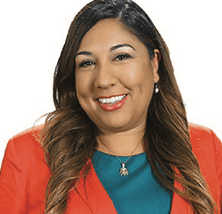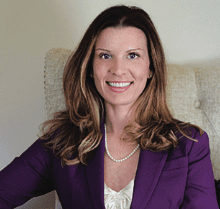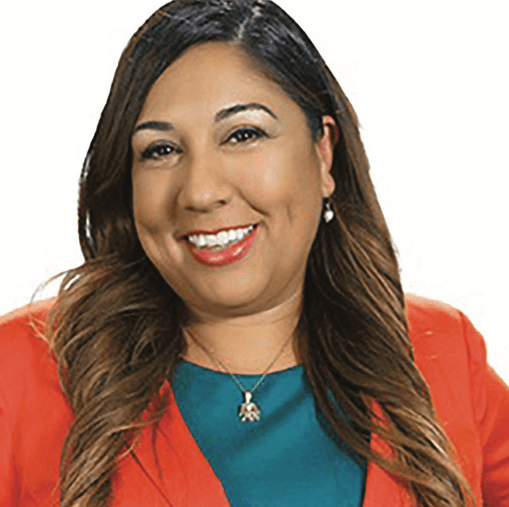
Ask the Pros: Are You Ready to Start Your Own Tax Practice?
Every year, many tax professionals start their own tax practice. While they have many different motivations, and their firms take on different structures, many of these tax professionals agree: starting your own practice can be a rigorous but rewarding experience. How do you know if this is the right path for you and the right time to take this big step in your career?
We spoke to three tax professionals and QuickBooks ProAdvisors® who started their own practices. We wanted to learn about their motivations to go out on their own, the structures they chose for their businesses, the challenges they faced, and the advice they have for others who want to start their own practice. We asked them several questions you can also ask yourself to answer the most important question: Are you ready to start your own tax practice?
Meet the entrepreneurial experts
 Mariette Martinez, EA
Mariette Martinez, EA
Mariette Martinez is a virtual small business accounting consultant and tax professional. Her mission is to empower solo-entrepreneurs to seamlessly manage financial performance and meet year-round tax obligations by using accounting, tax and workflow technologies.
 Jackie Meyer, CPA, MSA
Jackie Meyer, CPA, MSA
Jacke Meyer is president and founder of Meyer Tax Consulting, LLC, in Southlake, Texas. Her team works with a select number of executives, investors, entrepreneurs and small businesses throughout the year on tax preparation, planning and accounting services.
 Mark Stewart, CPA
Mark Stewart, CPA
Mark Stewart is a partner at Feldstein & Stewart LLP, a full-service firm that serves medium and small businesses, and provides tax preparation, financial planning and audit/review/compilation attestation services.
Is the Time Right to Start Your Own Tax Practice?
Martinez, Meyer and Stewart all worked in the tax profession before starting their own practices, but there came a point for each of them when they decided that the time was right to break out on their own.
“I came from an entrepreneur background, and I always wanted my own accounting firm and tax practice where I could work with small businesses,” said Martinez. “I knew the time was right when I started my family. I wanted to be able to raise our kids and work from anywhere, at any time, so that
I could be a parent while maintaining a successful business. I also saw an opportunity to create a practice in the cloud. I had a passion for making this work and found clients who were excited about taking the plunge into the cloud with me. Because I am my own boss, I can choose the tools that are right for my practice and take the time to find the best resources on the cloud.”
Meyer’s impetus for starting her own practice was that she wanted the independence of working for herself. “I wanted to run the show and choose the business model and location of my practice. I did consulting while my practice grew, which helped me network and stay on top of the newest technology. Eventually, I had to stop because my firm was growing so quickly. Being innovative still keeps me going every day. There’s nothing holding me back from making my own choices to ensure we stay on the cutting edge of technology for clients.”
Stewart knew it was time to start his own practice because he had worked with his current partner, Alan Feldstein, for more than eight years, and developed a trusting relationship with him. “A couple of years before Alan and I became partners, we had a meeting, and he explained to me why he wanted to partner in the business,” said Stewart. “He told me, ‘Mark, I don’t want you to be my partner for the money or prestige. I want you to partner with me because I care about my clients, and I know you’ll take good care of them.’ I knew right then and there that this is what I wanted to do, and this is the person I wanted to be business partners with because we have the same goal: to have a direct impact and meaningful relationship with clients that helps them in their day-to-day lives.” Stewart also believes his personality is also well suited to run a business, “I am my team facilitator. I have a need to control my business, but no need for the spotlight, so I’m happy to let my team shine.”
While each of these tax professionals had a different motivation for starting their own practice, they were aligned on one thing: experience is a must. Martinez said, “Make sure you have a strong background in accounting and tax. There are so many other hurdles, including administration, learning how to sell and learning how to organize your practice, so be sure you have the fundamentals. This will give you the tools and the confidence to strike out on your own.”

Along with certifications, including becoming Enrolled Agents, CPAs and QuickBooks ProAdvisors, our experts spent years in the industry gaining experience. “I gained the right balance of experience by growing up with an entrepreneurial family, doing accounting and tax at a CPA office, and learning about the technical support side of tax preparation while working at a tax software company for a few years,” said Martinez. “When the opportunity came to create my own practice in 2009, I knew I was ready for the opportunity.”
Meyer and Stewart also had years of experience at CPA firms where they learned the ropes. Meyer “became the marketing guru in the practice,” giving her the skills she needed to market her own practice; Stewart grew up watching his family run a small practice, which gave him insight into what was necessary to run his own firm.
There are many reasons to start your own firm. Whether you are inspired by a family member’s entrepreneurial spirit, have an independent nature, are inspired to create an innovative practice, or are on the brink of a great partnership, be sure you have the drive and experience to take this leap of faith. Our experts agree, it’s hard work to start your own firm, but the right experience and motivation can keep you charging forward when the going gets tough.
Which Business Entity is Right for You?
If you have decided you are ready to start your own tax practice, one of the first steps is to decide what type of business entity is right for you. Each of our tax professionals chose different entities for their businesses, and there isn’t one right answer for success in a tax practice. Each practitioner chose the entity that offered the right benefits for their ideal practice.

Martinez chose a sole proprietorship for her practice. This is the most common business structure, and it can be a simple way to start a practice without creating a formal business structure. With the desire to maximize flexibility and cloud technology in her practice, this entity type gives Martinez a lot of control over her practice and decision making.
Meyer chose a single-member limited liability company (LLC) with an S corporation for her practice. For her business model, Meyer said, “This is most tax advantageous way to go.”
Stewart chose a partnership so that he and his partner could support each other in the practice. “The way the environment is rig ht now, with constantly changing tax laws and financial reporting standards, it’s very difficult for one person to go into practice on their own.” Stewart chose a partnership as one of his sources of support, but cautions, “If you choose to enter into a partnership, you need to find a partner who has a similar vision to your own. ‘Opposites attract’ might work in the world of marriage, but in business, you need to find someone with similar goals and values, as I did.”
The type of entity you choose can have broad implications on your practice, from the taxes you may pay and the challenges you may face, to the advantages you may be able leverage. For more information about business entity types, visit the Small Business Administration’s (SBA’s) resource on Choosing Your Business Structure.
“‘Opposites attract’ might work in the world of marriage, but in business, you need to nd someone with similar goals and values.” – Mark Stewart, CPA
What Challenges Do Pros Face When Starting Their Own Practice?
Professional Support
Our three experts agree that while no two practices are alike, the biggest challenges many new tax professionals face is where to get professional support and mentorship as they begin the transition to their own practice. With ever-changing tax code, technology and industry climate, support is often necessary to keep up. “You aren’t going to know all of the answers, but you need to know where to get the answers; it’s important to make some connections before you start your own practice,” said Stewart. “You cannot possibly stay on top of all of the changes yourself, so you’ll need to have a network of fellow professionals in place to help you along.”

For Stewart and Meyer, professional organizations have been a strong source of support. Stewart is a long-time member and president of the Westchester/Rockland Chapter of the National Conference of CPA Practitioners (NCCPAP). “Trade associations are a great way to build connections with people who have different expertise. I get more information talking to fellow practitioners at networking events than I do from speakers at conferences. I recommend taking continuing education in person so we can continue collaborating with other CPAs.”
Meyer has worked with the American Institute of Certified Tax Coaches (AICTC) to get on top of tax planning for her practice’s executive packages, and the Professional Association of Small Business Accountants (PASBA) to stay up to date on changes on the small business front. She also works with a business coach and attends his webinars to learn how to improve her practice’s sales and business processes, along with sharing ideas and support. “Chuck Bauer in Dallas has been instrumental in improving my executive package offerings as well as my business model this year,” she said.
Martinez added that family and social media were helpful support systems for her — and continue
to be helpful today. “Early on, I realized that my biggest support system is at home. Pick family members’ brains, and let them know that they can chip in by understanding that you will be working a little more as you get your business up and running,” she said.
With a virtual practice, it’s no surprise that Martinez found a lot of support online. “The most surprising support for me came from Facebook. I had no idea how I could really use Facebook to grow my business, and I found some great professional groups. I started by looking at what they were doing, joining other groups they were in and even connecting with their connections.” She also recommends searching online, including SBA.gov, for helpful resources.
Do you need more resources for finding advice and mentors? Check out the QuickBooks site, “< a href=”http://quickbooks.intuit.com/r/how-to-start-a-business/getting-advice/” target=”_blank”>How to Get More Advice” for a list of even more resources for financial help, legal assistance, peer advice and finding a mentor.
It’s important to do your due diligence when you choose a professional tax software company as well. Some offer not only product support, but training and tools that can help you stay up to date. Intuit® offers several resources in the Intuit ProConnectTM Training Center to help you continue learning, including live and recorded webinars, how-to videos, and peer training via forums. The Training Center offers the latest tax law changes and the impact they have on ProConnect software, the latest technology updates, best practices to help keep your client’s data secure, how to grow your firm, and more. Intuit ProConnect also offers the Tax Pro Center, a collection of valuable content, including articles, infographics and more, that provides insights on tax laws, building client relationships and practice management to help you take your practice to the next level.
No matter the sources of support you choose, it’s clear from our pros that it’s important to get connected to some dependable resources before you start your practice. And, Martinez adds, “Don’t be afraid to ask for help!”
Implementing the Latest Technology

While staying up to date on the latest technology is a challenge of its own, Meyer says that implementing the right technology without overwhelming her team and her clients often proves to be a greater challenge. “For the first few years in my practice, I would be the first person to jump into new apps. As the team grew, it became harder to quickly change to a new customer relationship management (CRM) system, document management system or other new technology. As you grow, there will always be some foundational issues with technology, and we’ve made some mistakes along the way. Bottom line, clients and staff need to be comfortable with new features.”
According to our pros, some of the biggest challenges with technology occur when software doesn’t operate as promised, so consider demos of the latest technology before implementing it in your firm and transitioning your clients to the new technology.

Hiring and Managing Staff
Coming from a CPA firm, tax professionals starting their own practices are often challenged with hiring and managing a staff of their own for the first time. “I wish I would have prepared myself for staffing and managing a team,” said Meyer. “Learning how to be a manager was a surprisingly difficult factor of starting my own practice.” She added, “I’ve rushed into staffing decisions under pressure that I would never make again with that experience under my belt. It’s a huge hit to an infant firm’s bottom line when a new hire investment doesn’t pan out. I needed to replace my gut feeling of people and their touted experience with true skills and personality testing, so using a site like optimizehire.com became imperative. I used to hire only very experienced people to avoid training, but I’ve learned that someone with less experience who has a high level of commitment, drive and adaptability may end up performing better.”
Defining expectations and guidelines to staff and clients has been a key part of Meyer’s management strategy, especially when her firm was new. “For example, we use the E/U/NU urgency email system to help our team and clients understand priority levels and be more proactive versus reactive to ‘accounting emergencies.’”
“I wish I would have prepared myself for staf ng and managing a team.”
– Jackie Meyer, CPA, MSA
Marketing
Our pros had several pieces of advice regarding marketing. Meyer said that when she was starting her practice, LinkedIn was her secret to success. “I performed targeted marketing on LinkedIn, and I found great business clients in my area. Firms now are really getting integrated into Facebook and leveraging targeted marketing on that platform.”
Meyer and Martinez warned that they did not make a large amount of revenue the first year of their firm as they were focused on administration and firm growth. Meyer said, “I offered potential clients free one-hour consultations during the growth phase of my firm. I don’t need to do this anymore, but when I was getting started, it helped me prove myself to potential clients.”
Martinez also offered some general marketing advice: “There’s so much content on the web from other people who are entrepreneurs. Blogging and being interviewed are great opportunities to share your story.”
Managing Third-Party Partnerships
Stewart described his biggest surprise as a new partner in his practice as “the flood of phone calls and contacts I received from other businesses trying to partner with my firm as clients.” Companies offering insurance, payroll, banking services and more often reach out to Stewart to try to convince him to do business with them. “I had to manage a lot of incoming calls, but more importantly, pick the right businesses who would treat my clients well. When you run your business, you are now a facilitator between clients and third parties, and you need to be prepared for that,” Stewart said.
“You’re going to mess up, fail and disappoint people, but take the opportunity to learn from your mistakes so that something good can come from something bad.” – Mariette Martinez, EA

Managing It All
Our panel of experts expressed that “managing it all” is one of the biggest challenges they faced when starting their own practices.
Because you are managing and growing your own practice, your practice’s success is directly correlated to how hard you work. “You never really shut down,” said Martinez. “You need to create efficiencies because you cannot work all of the time.” Meyer added, “There are times I’ve had to step away from parts of my practice to make sure I stay sane in my personal life.”
Several of the pros discussed the pressure of being the manager not only of your own livelihood, but of your employees. Meyer said, “I don’t think people realize how much weight you tend to take on your shoulders when you have your own practice. The responsibility level is insanely high.”
Managing it all”can come with a learning curve, but Martinez’ advice is to never give up. “You’re going to mess up, fail and disappoint people, but take the opportunity to learn from your mistakes so that something good can come from something bad.”
“You’re going to mess up, fail and disappoint people, but take the opportunity to learn from your mistakes so that something good can come from something bad.” – Mariette Martinez, EA
Helpful resources links
How to start a professional tax practice
Start your professional tax practice
—
Post provided courtesy of Intuit

